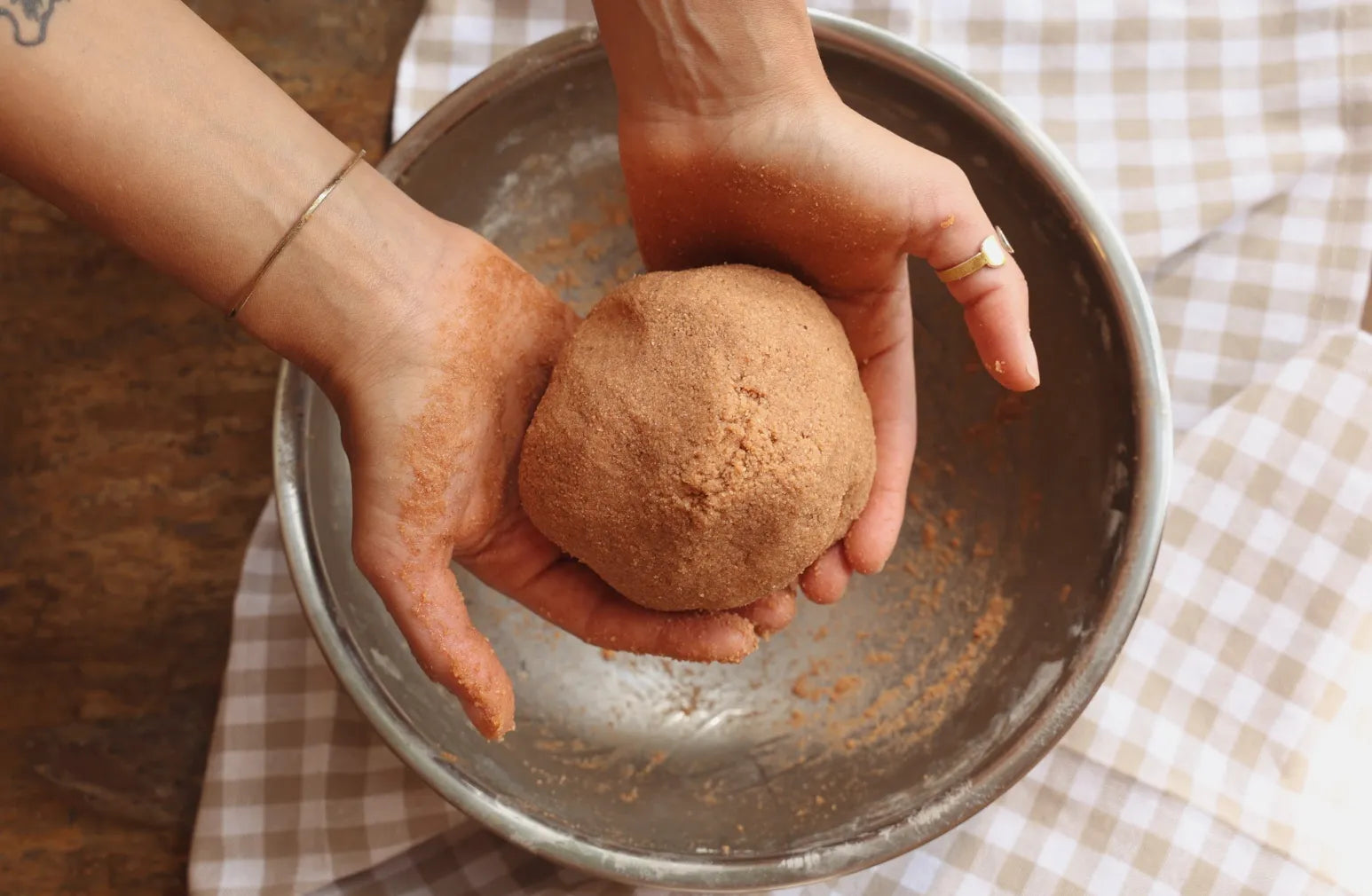Hi, I’m Anna. Fibre is often hailed as a digestive superfood, and for good reason—it keeps your gut moving, supports a healthy microbiome, and helps prevent stomach cramps and bloating. But, like many things in health, balance is key. While the right amount of fibre can help you feel light and comfortable, too much (or the wrong kind) can leave you feeling bloated, crampy, and sluggish.
I learned this lesson the hard way during my own journey to improve gut health. As Co-Founder of The SABI and a Product Developer, I’ve always been curious about how natural solutions can support well-being. But back when I was struggling with digestive issues, I thought the answer was simple: more fibre. I went all-in on high-fibre foods, convinced they would solve all my digestive woes. Instead, I found myself feeling more bloated than ever, with cramps that left me questioning what I was doing wrong.
It wasn’t until I started looking at the bigger picture—pairing the right kinds of fibre with proper hydration, mindful eating habits, and soothing support from The Digestive Herbata—that everything finally clicked. It wasn’t just about adding fibre; it was about creating balance in my digestive routine.
Here’s how fibre supports digestion, when it can cause problems, and how to find the sweet spot for your gut health—so you can feel lighter, more comfortable, and in tune with your body.
What Are FODMAPs?
FODMAPs stand for fermentable oligosaccharides, disaccharides, monosaccharides, and polyols. These are short-chain carbohydrates found in many common foods. While they’re perfectly healthy for most people, they can be difficult to digest for some, particularly those with sensitive guts or conditions like irritable bowel syndrome (IBS).
Here’s what happens:
-
FODMAPs aren’t fully absorbed in the small intestine.
-
They travel to the large intestine, where gut bacteria ferment them.
-
This fermentation produces gas, which can lead to bloating, cramps, and discomfort.
High-FODMAP Foods to Watch Out For
Certain foods are especially high in FODMAPs and may contribute to bloating. Common culprits include:
1. Vegetables
-
Onions, garlic, broccoli, cauliflower, cabbage, asparagus, and Brussels sprouts.
-
Why? These are rich in oligosaccharides, which are highly fermentable.
2. Fruits
-
Apples, pears, mangoes, cherries, and watermelon.
-
Why? Many contain polyols (sugar alcohols) that can ferment in the gut.
3. Legumes
-
Lentils, chickpeas, black beans, and kidney beans.
-
Why? They’re high in galactooligosaccharides, which are not easily digested.
4. Dairy Products
-
Milk, yogurt, soft cheeses, and ice cream.
-
Why? Lactose is a common FODMAP for people with lactose intolerance.
5. Artificial Sweeteners
-
Sorbitol, xylitol, and maltitol (found in sugar-free gum, candies, and snacks).
-
Why? These polyols are difficult for the gut to break down.
Other Dietary Factors That Contribute to Bloating
While FODMAPs are a big part of the story, other dietary habits can also cause bloating:
1. Overeating
Eating large portions can overwhelm your digestive system, causing food to sit longer in your stomach and ferment.
2. Eating Too Quickly
When you eat quickly, you’re more likely to swallow air, which can get trapped in your digestive tract and contribute to bloating.
3. Carbonated Drinks
Sodas, sparkling water, and beer contain gas, which can accumulate in your stomach and cause bloating.
4. Fatty Foods
High-fat meals take longer to digest, which can delay stomach emptying and lead to bloating.
How to Manage Bloating Triggers
While it’s impossible to avoid all potential triggers, small adjustments can make a big difference. Here’s how to minimise bloating and keep your digestion happy:
1. Try a Low-FODMAP Diet
A low-FODMAP diet can help you identify which foods trigger your symptoms. This involves:
-
Eliminating high-FODMAP foods for 4–6 weeks.
-
Gradually reintroducing them one at a time to see which ones cause issues.
2. Practice Mindful Eating
-
Slow down and chew each bite thoroughly.
-
Take smaller portions to avoid overeating.
-
Avoid drinking through straws, which can cause you to swallow air.
3. Pair Meals with Herbal Remedies
Sipping on herbal teas like The Digestive Herbata can ease bloating naturally. This blend combines:
-
Cinnamon and Cardamom: To stimulate digestion and reduce gas.
-
Holy Basil: To relieve stress-induced bloating.
-
Stinging Nettles: A natural diuretic to reduce water retention.
4. Stay Hydrated
Drinking water throughout the day helps keep your digestive system moving. Avoid chugging large amounts during meals, as this can dilute stomach acid and hinder digestion.
5. Experiment with Probiotics
Probiotics can help balance your gut bacteria, reducing gas and bloating over time. Look for strains like Lactobacillus and Bifidobacterium in supplements or fermented foods like yogurt, sauerkraut, and kefir.
When to Seek Help
If bloating is persistent, severe, or accompanied by other symptoms like pain, weight loss, or changes in bowel habits, it’s important to consult a healthcare provider. Chronic bloating may be a sign of underlying conditions like IBS, celiac disease, or small intestinal bacterial overgrowth (SIBO).
Listening to Your Body
Bloating can be frustrating, but it’s also a valuable signal from your body. By understanding the role of FODMAPs and other dietary factors, you can take steps to prevent discomfort and feel more in tune with your gut. Start small—track your meals, try a low-FODMAP diet, or incorporate a cup of The Digestive Herbata into your daily routine.
Over time, these simple changes can help you feel lighter, more comfortable, and confident in your body.
References
-
"The Low-FODMAP Diet for IBS Relief" - Journal of Gastroenterology and Hepatology
https://onlinelibrary.wiley.com/ -
"The Role of Fermentable Carbohydrates in Digestive Symptoms" - Nature Reviews Gastroenterology
https://www.nature.com/ -
"Probiotics for Gas and Bloating: A Review" - Advances in Therapy
https://link.springer.com/ -
"The Effects of Mindful Eating on Digestion" - Journal of Nutrition Education and Behavior
https://www.jneb.org/
















